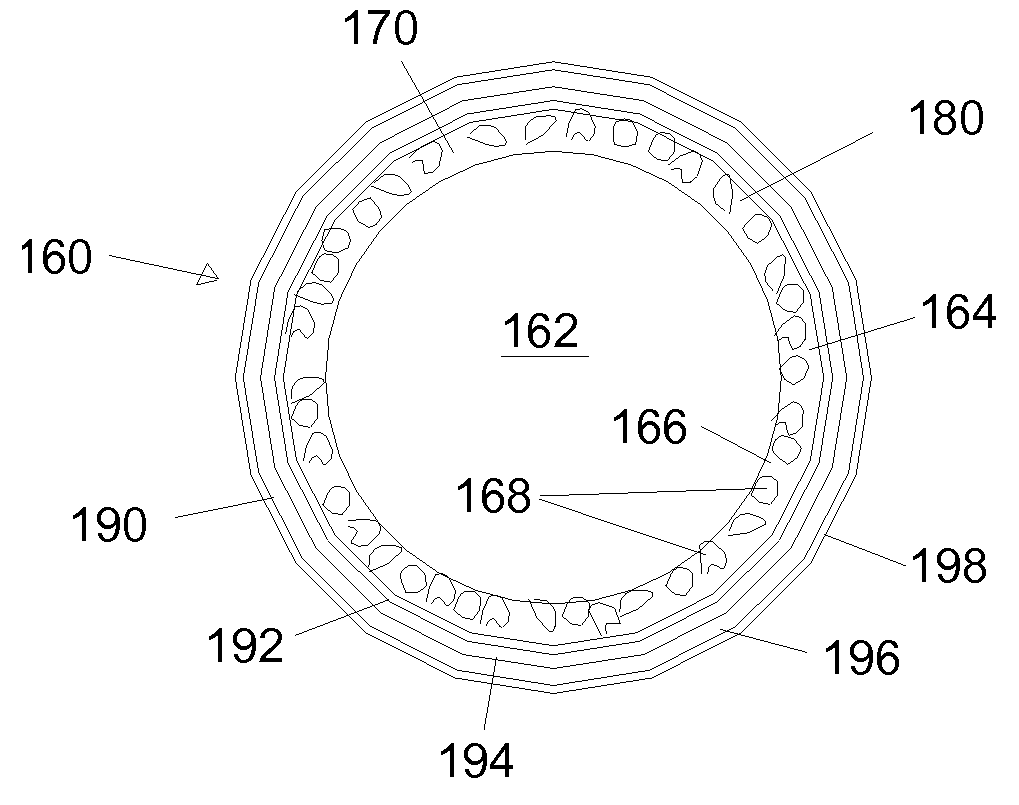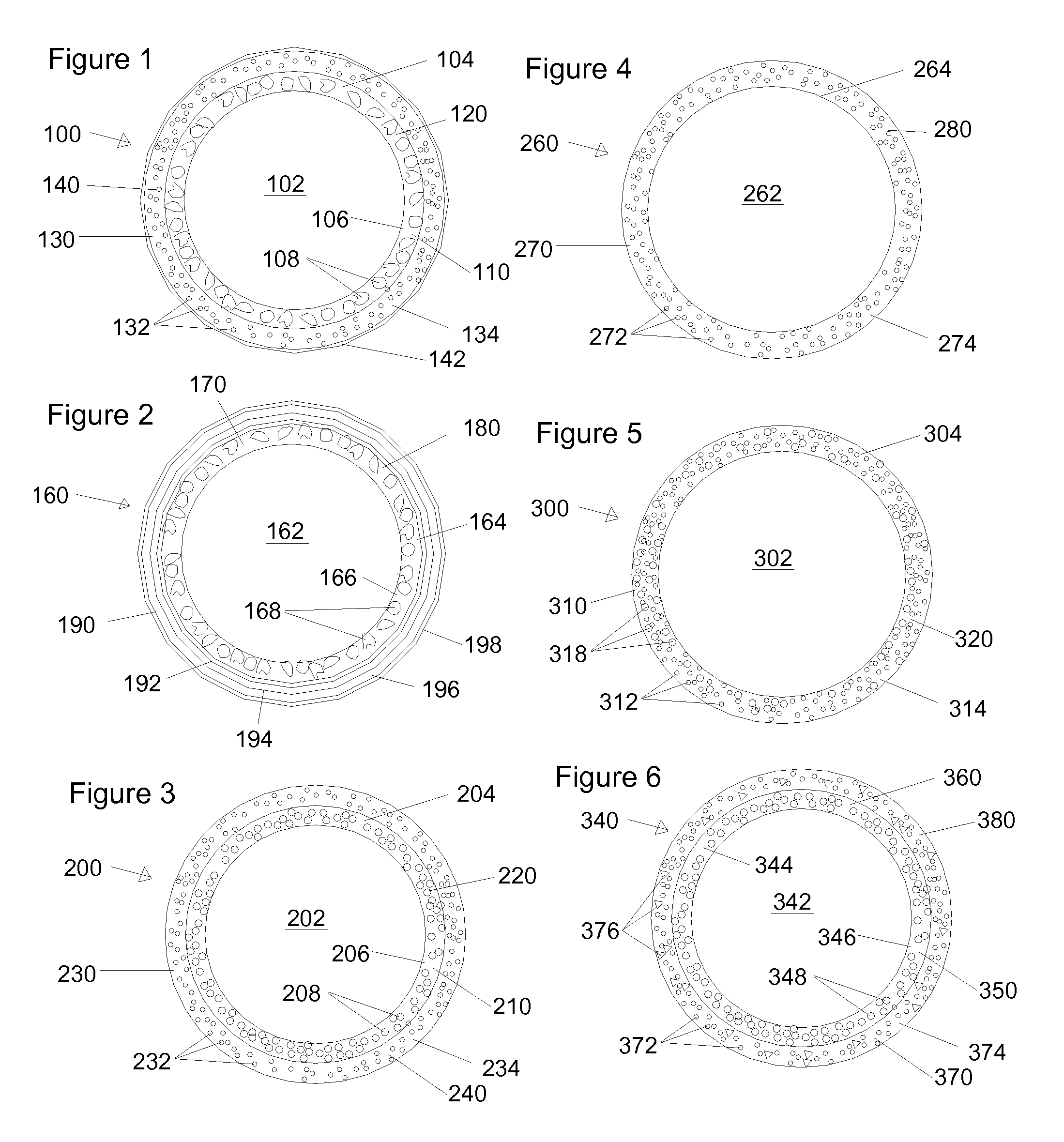Solar heat-reflective roofing granules, solar heat-reflective shingles, and process for producing same
a technology of solar energy and roofing granules, applied in the field of asphalt roofing shingles, can solve the problems of small pigment amount, reducing the effective service life of asphalt roofing, and affecting the appearance of asphalt roofing,
- Summary
- Abstract
- Description
- Claims
- Application Information
AI Technical Summary
Problems solved by technology
Method used
Image
Examples
example 1
[0131]1000 g of #93 roofing granules without any surface treatment (available from CertainTeed Corp. Norwood, Mass.) is first blended with 36.25 g of sodium silicate (grade 42, Oxychem Corp., Dallas, Tex.), 12.5 g of titanium dioxide (R101 from DuPont Corp. Wilmington, Del.), 12.5 g of kaolin clay, and 8.2 g of water in a tumbler to form a uniform coating on the roofing granules. The coated granules were then dried in a fluidized bed and were heated to 925 degrees F. in a rotary kiln to insolubilize the coating. After cooling to room temperature, the granules have a white appearance with L*=75.16, a*=−0.33, b*=1.93 as measured by HunterLab XE spectrophotometer, and a solar reflectance of 44% as measured by the D&S portable reflectometer according to ASTM C1549. The granules were then coated with a second coating composition consisting of nano-sized iron oxide pigments of 0.025 g T-3070B, 0.1 g T-2050R, and 0 46 g T-1030Y from Novant Chemicals, 31.25 g of sodium silicate, 2.8 g of al...
examples 2-4b
[0132]The transparency of the nano-sized color pigments in the spectrum range of the solar radiation employed in the coating compositions of the present invention is shown using the drawdown method typically used in the coating industry. Results are displayed in Table 2, in which the effect of employing nano-sized iron oxide pigments in the roofing granule coating composition is compared with the use of traditional iron oxide pigments using coating drawdown method. In these examples, 2 g of pigment was mixed with 20 g of sodium silicate under an electric stirrer at 300 rpm until a uniform mixture was formed. The resultant coating slurry was then formed into a film using a 6 mil drawdown bar (SAR-5T30 from BYK Gardner, Columbia, Md.) over an opacity chart paper (SAR-3721 from BYK Gardner). The results in Table 1 clearly show the transparency of nano-sized pigments and their high solar reflectance over white reflective background, with enhanced color values in combination of white bac...
PUM
| Property | Measurement | Unit |
|---|---|---|
| thickness | aaaaa | aaaaa |
| solar reflectance | aaaaa | aaaaa |
| solar reflectance | aaaaa | aaaaa |
Abstract
Description
Claims
Application Information
 Login to View More
Login to View More - R&D
- Intellectual Property
- Life Sciences
- Materials
- Tech Scout
- Unparalleled Data Quality
- Higher Quality Content
- 60% Fewer Hallucinations
Browse by: Latest US Patents, China's latest patents, Technical Efficacy Thesaurus, Application Domain, Technology Topic, Popular Technical Reports.
© 2025 PatSnap. All rights reserved.Legal|Privacy policy|Modern Slavery Act Transparency Statement|Sitemap|About US| Contact US: help@patsnap.com


